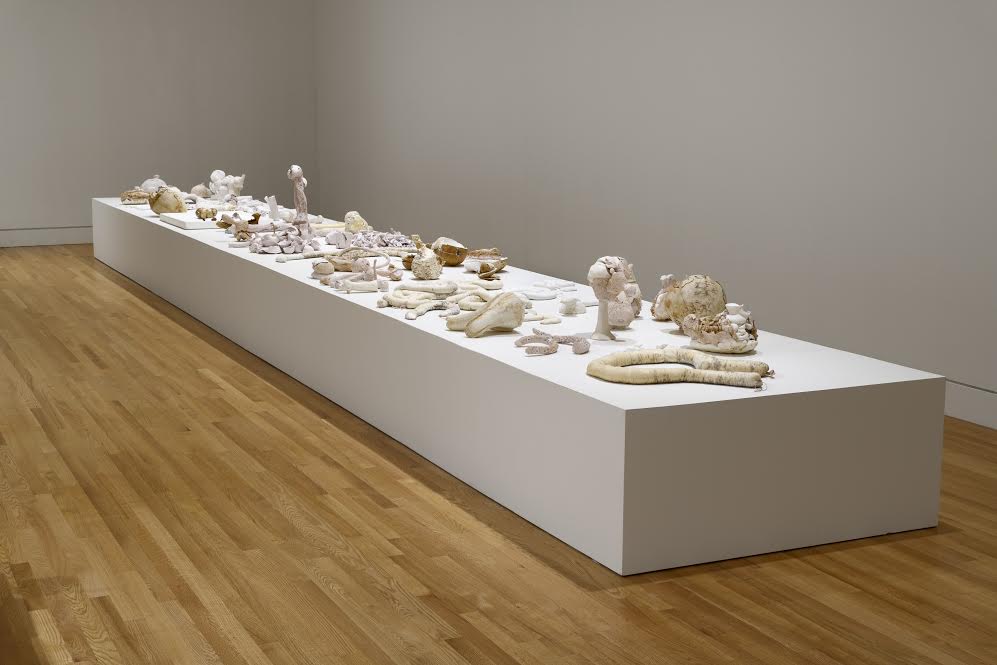I have it; you can borrow it
(1 of 4)
R: There was a moment when you – there were these little plaster globules in these paper bags – and you had pointed them out. And that was a moment when I was seeing my work through your eyes. Because you were like, ‘This is work,’ and I thought, ‘Oh, of course. This is what is exciting about this whole thing, is that even in the little shards there are moments – if [the work] is about this form of attention, then that attention can go down to the simplest most direct cast.’ And I think you pointing that out showed me something I had totally forgotten.
F: The way you installed all the little bits made me want to play with that more also – that it could just be a real mess. Cause I love the studio mess, but it’s so hard to find ways to transport that where it’s not a restaging of the work space, because that’s not the same thing. But what you did was to get a sense of what I like about the workspace and put it in a way that was like ‘No, this is work. It’s not a restaging of Rob’s studio.’ But it had the things that I like when you go to a studio and you see all the bits and pieces.

Francesca Lohmann was raised in the foothills of Northern California, and now lives and works in the Pacific Northwest. Trained in Printmaking, her practice continues to be concerned with material in time, imprints, boundaries, repetitions, affinities, and points of contact. Rob Rhee is a rubbernecker, a collector of accidents, a writer, visual artist, and educator based in Seattle, WA.